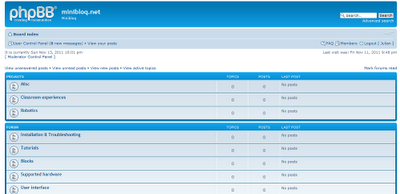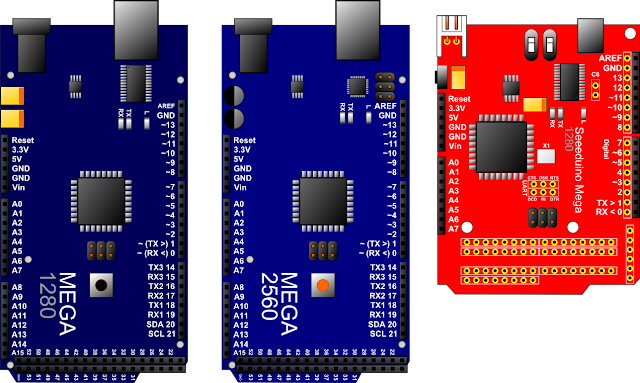Hi! Has been two weeks since Minibloq.v0.8.Beta was released. So I want to say thanks! First, thanks for the feedback, the tweets, the comments, and the posts in other blogs. I'm sure I'm missing some of them (please add your link in the comments belonging to this post), but there are some interesting ones about the project I want to mention here:
Arduino's official blog (thanks
Priya!)
Hack A Day (for the second time! Thanks Mike!)
Maker Masters (thanks again Bill!)
I Programmer (thanks Harry!)
Mexchip (en español, ¡Gracias!)
chetanpatil.info and
Planet FLOSS India (thanks Chetan!)
Spreading the word is now very important to help the project. I'm already working on the next version (v0.81.Beta), and some friends are helping with the code and with the porting to other OSs (such as Mac OS X). But the most important thing now is to strengthen the user community. I hope to have also an online forum this week (or the next one). I want to say thanks to the mirrors too, in Mexico (thanks again to Mexchip) and in Netherlands (thanks to Gijs Noorlander) and in Finland (thanks to Jari). Please visit the
Download section to get Minibloq from
RobotGroup's server or from the mirrors.
And there is also a good new for Mac OS X users!
Ulises Mendoza, from Spain, has finished a first approach to run Minibloq.v0.8.Beta under Mac OS X, using Wine. I know it's still difficult to install, and I will really like to have the native version ready as soon as possible, but it's just the first step. Minibloq was developed with cross-platform and open source tools (
wxWidgets and
GCC), so I hope to have native versions both for Linux and for Mac OS X in a not-so-far-future. Here is the screenshoot of the previous (Alpha) Wineskin version running:
Regarding the native Linux version, a company from Chile (
http://doingit.cl, special thanks to Juan Pizarro) is helping to compile Minibloq for Debian-based Linux distributions. More on this soon...
Enjoy!





















